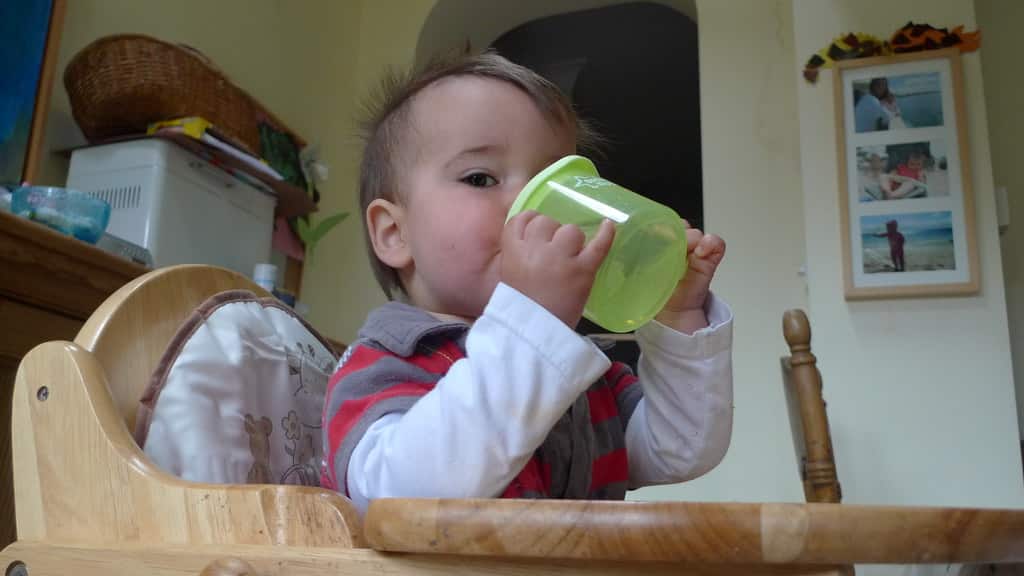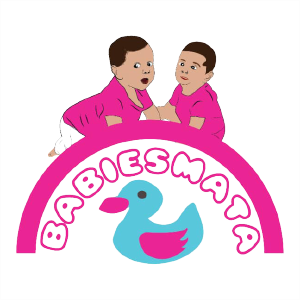When Can a Baby Start Drinking Water?

There are a lot of things that amaze me when it comes to a baby. Should we narrow it down to baby and fluid or baby and sleep? All these are the common attributes found in them. The commonest is baby and fluid. This is because right from birth, they have been feeding on fluids but breast milk only. They are so dependent on it because, at that point, that is all they are given and can at the same time consume. But with time, it will get to a growth stage (a certain age) that not just breast milk alone any longer but other fluids, especially water.
Water and its importance as well as associated risks
Water is a basic necessity for all living souls. A lot of benefits have been attached to water consumption. It includes dehydration control, constipation prevention, excretion processes through perspiration, urination, and the likes.
Breast milk is sufficient to keep babies hydrated because of the presence of water present in there. Even after the first few days of birth, the colostrums are all that is needed to keep the baby well hydrated. A well-breastfed baby does not require additional water. Also, formula-fed babies do not need extra water. On no account should a baby be given water before six months old without consulting pediatrics for guidelines even if it is hot outside.
Water supplements may come with several risks like excessive weight loss, loss of nutrients (malnutrition), poor nursing, jaundice, etc. At times, the water might not be free from dirt for the baby\’s intake, and that can result in infections.
Breastfed baby versus formula-fed baby
According to the World Health Organization, babies that breastfeed well do not require additional water. This is because breast milk already contains more than 88% of the water needed by the baby. It is also recommended that babies should breastfeed for the first six months of their life. Do it without substituting any other supplement in between, except the medicines they take.
Still, the reverse is the case for formula-fed babies due to one reason or the other. Their feed is usually prepared with water. Therefore, their water intake began at this point. The water present in breast milk is so pure, which protects the baby from all forms of infection. But over time, that water might no longer be sufficient with time (age), and the baby will need to start drinking water.
Related Article: At What Age Should Moms Stop Breastfeeding Their Babies?
Recommended age a baby can start drinking water?
Now, the question is, when can a baby start drinking water? When it comes to baby and water, you consider a lot of factors before giving him water to drink. Not just any kind of water, but which type in particular and at what quantity? This is necessary so that you don\’t end up causing unnecessary bowel movements, infections, or malnutrition for the baby.
Experts suggest that once the baby is six months old, you can start giving him or her a small amount of water. That should not substitute breast milk or infant formula because proper breastfeeding should last at least twelve months of age. Also, when solid food intake is introduced, which usually takes six months or more, you can add water to the diet. No matter what you are proposing, it should not affect the nutrient intake and overall growth.
Therefore, all need to be balanced. The water might be introduced as a beverage or juice. As the child continues to grow, the water level intake also increases naturally. And after a year, water is used to quench thirst between meals. By then, the baby would have been consuming regularly scheduled meals and snacks.
What type of water is considered safe for the baby to drink?
The type of water that is considered suitable for babies\’ consumption must be safe and includes:
- Tap water: The one that comes from cold tap water. It is left to run for a long time to flush out any built-up contaminants like lead or copper that usually accumulates in the pipes. Also, the hot water taps typically contain a high level of metal contaminants than the cold tap. This is because heat dissolves these metals, and therefore, it should not be used.
- Well water: The one that meets the standard of safety. How is this tested? Well water should be treated regularly. It should be tested for chemicals and bacteria three times per year. Babies should take only the ones that meet both standards (chemical and bacteria tests). This water testing can also be used to measure the level of fluoride within well water.
- Commercially bottled water: Natural spring water or treated water with low mineral content.
All these are not sterilized water. There is no cause for alarm if given to babies of ages six months and above. At this stage, their immune system is strong enough to contain these kinds of water. Asides this, babies should not take some water. They include mineral water, flavored water, carbonated water, softened water, etc. All these can cause health problems and should be avoided.
Related Article: When to Introduce Your Baby to Spoon
Water intake recommendation for babies
For now, there is usually no recommended amount of water that should be taken by babies of six months and above. The amount should be limited to avoid interference with breast milk, formula, or solid food intake. Experts suggest that 2-3 ounce of water at a time is appropriate for a baby from six to twelve months old. It would not interfere with the intake of any other foods.
Older babies between nine and twelve months should take more. Once the child celebrates his or her first birthday and starts eating solids, it is not harmful to allow the baby to drink water freely, but only between meals.
Once you know when a baby can start to drink water, you don\’t need to bother yourself how to go about it. There is no right or wrong way. It depends on what the baby can quickly adapt to and find comfortable. It can be from a bottle, sippy cup or regular cup, or straw.
Therefore, mothers must be aware of when a baby can start drinking water. It will enhance the proper monitoring needed for the baby\’s further growth.








